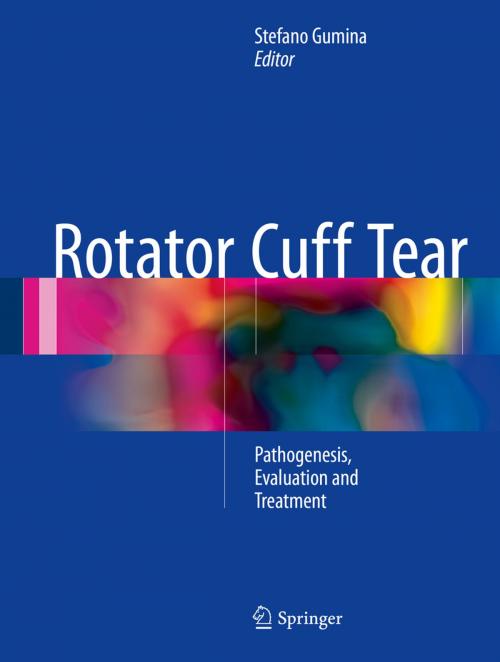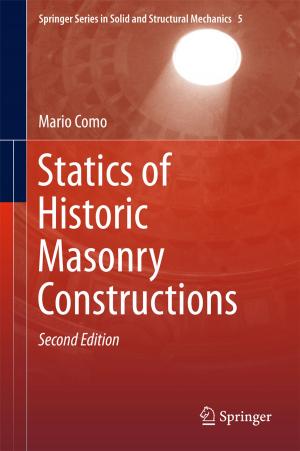Rotator Cuff Tear
Pathogenesis, Evaluation and Treatment
Nonfiction, Health & Well Being, Medical, Specialties, Physical Medicine & Rehabilitation, Orthopedics| Author: | ISBN: | 9783319333557 | |
| Publisher: | Springer International Publishing | Publication: | November 14, 2016 |
| Imprint: | Springer | Language: | English |
| Author: | |
| ISBN: | 9783319333557 |
| Publisher: | Springer International Publishing |
| Publication: | November 14, 2016 |
| Imprint: | Springer |
| Language: | English |
This handbook provides detailed, state of the art information on simple and complex rotator cuff tears that will be of value in daily clinical practice. It covers all relevant aspects, including basic science, pathogenesis, clinical and instrumental evaluation, and treatment techniques. Drawing on the results of recent studies, the book will enable the reader to better understand how tears occur and what treatment should be employed in different circumstances.
Rotator cuff tear has always attracted great interest because it may cause shoulder pain, loss of strength, simple or complex disabilities, and partial or total inability to work, reducing quality of life. The goals of cuff repair are to restore footprint anatomy with biomechanically secure, tension-free construction that promotes biological healing at the tendon-to-bone interface. Even today, there is cause for discussion about when and how to perform surgical repair and on what to do in cases of irreparable rupture. This book casts light on such issues. It is especially designed for shoulder surgeons and rehabilitation specialists and will also be of value for residents and shoulder fellows.
This handbook provides detailed, state of the art information on simple and complex rotator cuff tears that will be of value in daily clinical practice. It covers all relevant aspects, including basic science, pathogenesis, clinical and instrumental evaluation, and treatment techniques. Drawing on the results of recent studies, the book will enable the reader to better understand how tears occur and what treatment should be employed in different circumstances.
Rotator cuff tear has always attracted great interest because it may cause shoulder pain, loss of strength, simple or complex disabilities, and partial or total inability to work, reducing quality of life. The goals of cuff repair are to restore footprint anatomy with biomechanically secure, tension-free construction that promotes biological healing at the tendon-to-bone interface. Even today, there is cause for discussion about when and how to perform surgical repair and on what to do in cases of irreparable rupture. This book casts light on such issues. It is especially designed for shoulder surgeons and rehabilitation specialists and will also be of value for residents and shoulder fellows.















